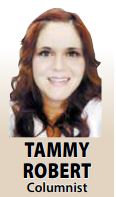
After writing this column for almost a decade, I’ve tackled many subjects I didn’t ever expect to even contemplate.
An economically devastated Saskatchewan, hunkered under lockdown as an unrelenting, vicious virus circles our homes, our families and communities is definitely one of them.
Expectations.
That is the word that has been running through my mind since this started, but especially since Premier Scott Moe delivered his plan to Reopen Saskatchewan.
As a society used to being able to access massive amounts of information at the tip of our fingers, this feeling of not knowing what will happen next has been disorienting. The concept of the experts — scientists, CEOs, the World Health Organizations, elected leaders — not having the answers is anxietyinducing, compounding the impact of COVID-19 on our daily lives.
We have often described outcomes or incidents as “unprecedented,” but typically that label is applied only to the specifics; for example, an act of terrorism in a region where such attacks are rare may be characterized as unprecedented, but terrorist acts in general are not.
The same does not apply for this pandemic, leaving us to our own devices when contemplating what to expect next.
As I write this, what Saskatchewan is expecting to happen in the coming weeks is a “return to normal” or a “new normal.”
Excitement and nervous energy are palpable as small businesses like hair salons and massage therapy clinics prepare to go back online, accepting patients and attempting to restore some kind of profitable operation. These expectations are compounded by the Government of Saskatchewan opting to use fixed dates, instead of data, to drive their plan.
Managing peoples’ expectations properly and realistically, including those of your customers’, is so important. You often see this importance highlighted by politicians and governments, both of which usually know to set our expectations realistically, but low, in order to exceed them.
Unfortunately, that’s not a strategy that seems to be viable right now and it’s going to hurt in the long run. The reality is that the government cannot reopen the economy — only consumers can do that, when and if they feel confident that they can afford to spend their money while doing so without putting themselves or their loved ones at risk.
Which leaves the onus on the business owner to manage the expectations of clients, which have been set by the government and its plan to Re-open Saskatchewan. To that end, I can offer a bit more than just doom and gloom. Here are a few tips for managing your business’ reputation during a pandemic, when managing everything else feels overwhelming:
1. If you learn a COVID-19 case has been linked to your business, don’t panic.
2. Before you re-open, ensure that you have a mechanism in place with the Saskatchewan Health Authority to confirm information related to your business.
3. If the information is correct, have a pre-written, brief paragraph ready to post on your social media channels, acknowledging the situation and providing detailed information on what you are doing in response.
4. Follow up by doing what you say you’re going to do, documenting it closely with photos.
5. Include those photos in a second social media statement, closing the issue. Obviously, this is simplistic, but it’s a start. My best advice right now would be to add a communications professional to your emergency contact list, as they’ll be able to assist you from an arms-length, neutral perspective, free of the emotion that can drive wrongheaded reactions to the feeling that your business is under attack, which it’s not — we are.
The fact that like all things, this too shall pass and we will come out stronger for it, is the one and only expectation I believe will be exceeded.
-Tammy Robert
